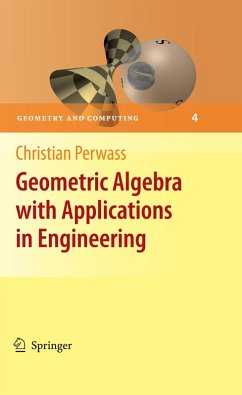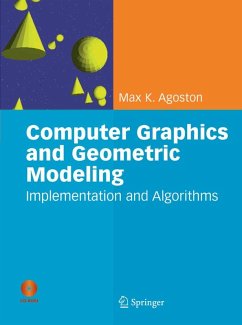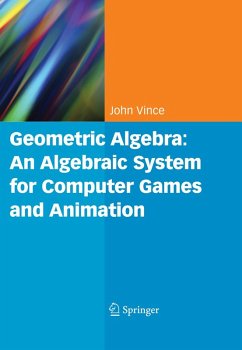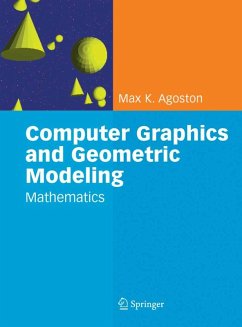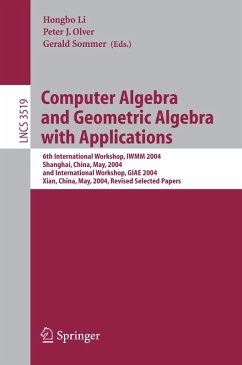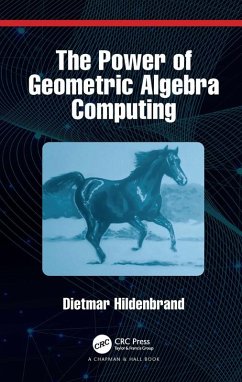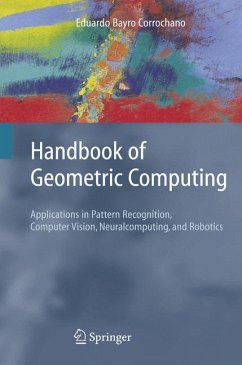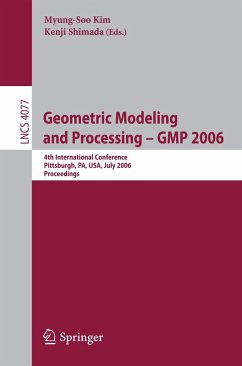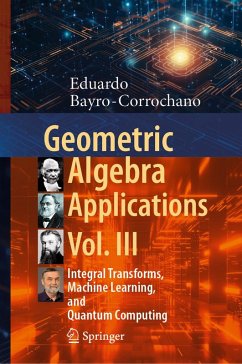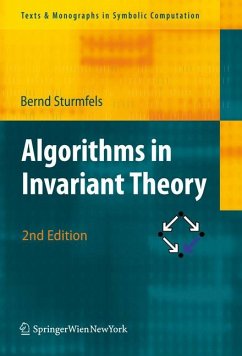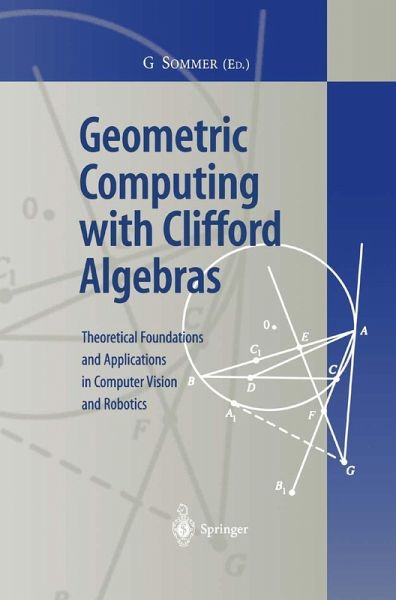
Geometric Computing with Clifford Algebras (eBook, PDF)
Theoretical Foundations and Applications in Computer Vision and Robotics
Redaktion: Sommer, Gerald
Versandkostenfrei!
Sofort per Download lieferbar
128,95 €
inkl. MwSt.
Weitere Ausgaben:

PAYBACK Punkte
64 °P sammeln!
Clifford algebra, then called geometric algebra, was introduced more than a cenetury ago by William K. Clifford, building on work by Grassmann and Hamilton. Clifford or geometric algebra shows strong unifying aspects and turned out in the 1960s to be a most adequate formalism for describing different geometry-related algebraic systems as specializations of one "mother algebra" in various subfields of physics and engineering. Recent work outlines that Clifford algebra provides a universal and powerfull algebraic framework for an elegant and coherent representation of various problems occuring i...
Clifford algebra, then called geometric algebra, was introduced more than a cenetury ago by William K. Clifford, building on work by Grassmann and Hamilton. Clifford or geometric algebra shows strong unifying aspects and turned out in the 1960s to be a most adequate formalism for describing different geometry-related algebraic systems as specializations of one "mother algebra" in various subfields of physics and engineering. Recent work outlines that Clifford algebra provides a universal and powerfull algebraic framework for an elegant and coherent representation of various problems occuring in computer science, signal processing, neural computing, image processing, pattern recognition, computer vision, and robotics. This monograph-like anthology introduces the concepts and framework of Clifford algebra and provides computer scientists, engineers, physicists, and mathematicians with a rich source of examples of how to work with this formalism.
Dieser Download kann aus rechtlichen Gründen nur mit Rechnungsadresse in A, B, BG, CY, CZ, D, DK, EW, E, FIN, F, GR, HR, H, IRL, I, LT, L, LR, M, NL, PL, P, R, S, SLO, SK ausgeliefert werden.



